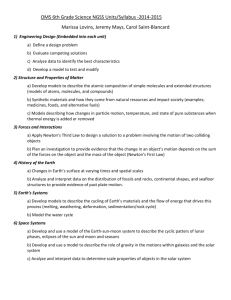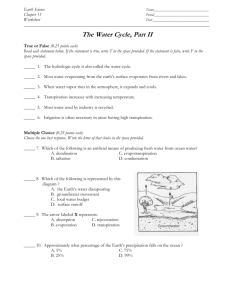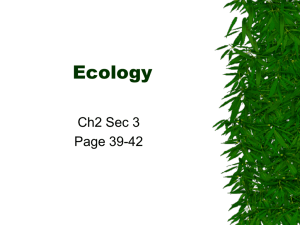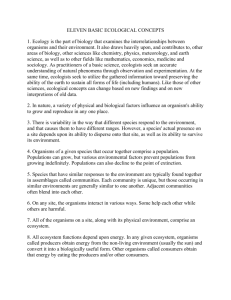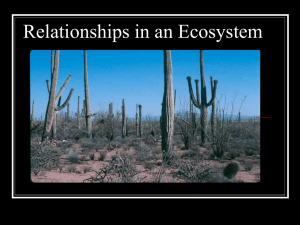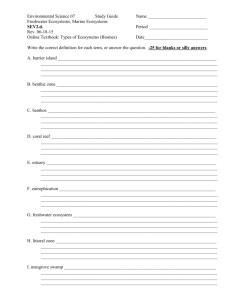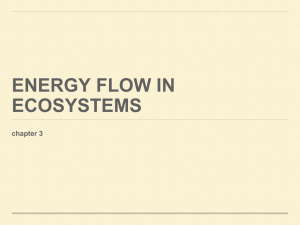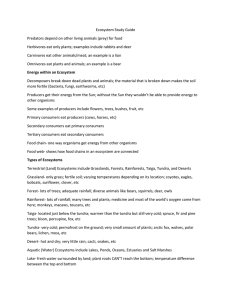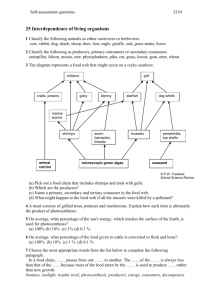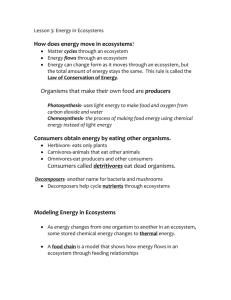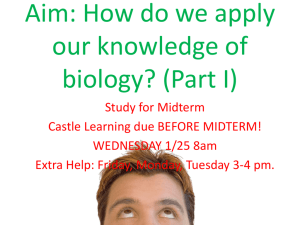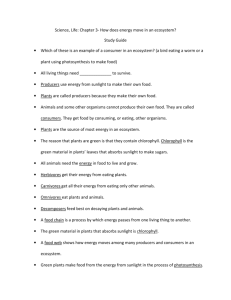Life Science - St. Aidan School
advertisement
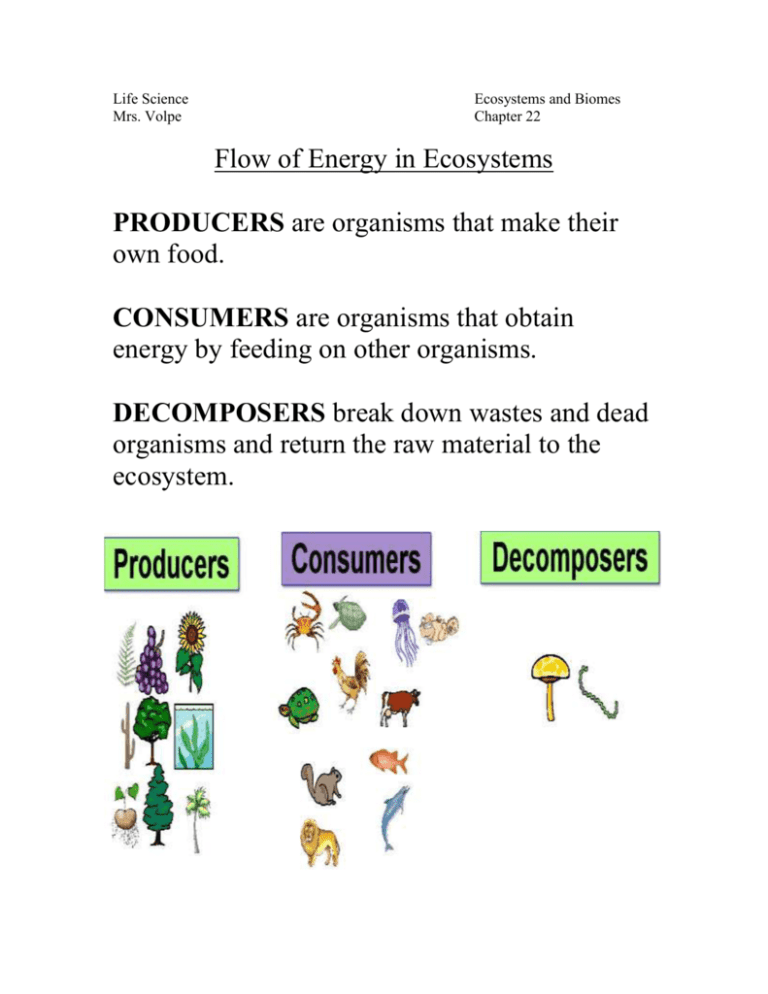
Life Science Mrs. Volpe Ecosystems and Biomes Chapter 22 Flow of Energy in Ecosystems PRODUCERS are organisms that make their own food. CONSUMERS are organisms that obtain energy by feeding on other organisms. DECOMPOSERS break down wastes and dead organisms and return the raw material to the ecosystem. The FOOD CHAIN and the FOOD WEB show the movement of energy through an ecosystem. A food chain is a series of events in which one organism eats another and obtains energy. A food web consists of many overlapping food chains in an ecosystem. ENERGY PYRAMIDS show the amount of energy that moves from on feeding level to another in the food web. Water Cycle The WATER CYCLE is the continuous process by which water moves from Earth’s surface to the atmosphere and back. Made up of: Evaporation – Condensation – Precipitation Transpiration – Run Off/Collection Transpiration – The release of water from plant leaves. Run Off/Collection – Surface runoff: Precipitation runoff which travels over the soil surface to the nearest stream channel. Snowmelt runoff to streams: The movement of water as surface runoff from snow and ice to surface water. The Carbon and Oxygen Cycles CC/Producers take in carbon dioxide gas from the air during photosynthesis. They use carbon to make food molecules, such as sugar and starch. OC/Producers release oxygen as a result of photosynthesis. Most organisms use this oxygen to carry out their life processes. Nitrogen Cycle Nitrogen moves from the air to the soil, into living things, and back into the air.
